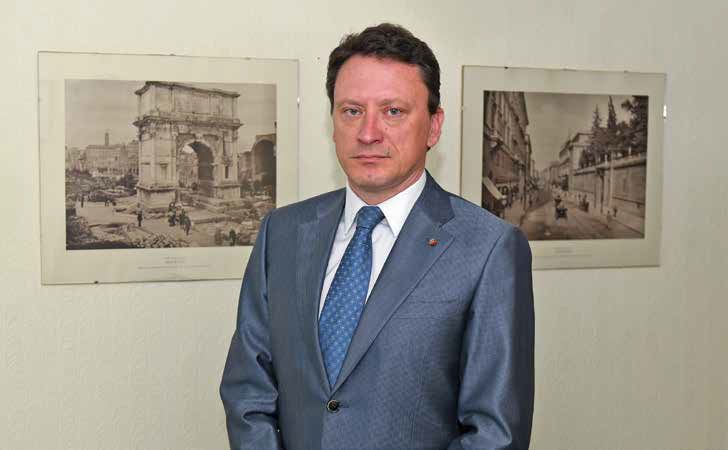The introduction of information systems into various administrative procedures will certainly contribute to more efficient dealing with citizens’ requests and reduction of bureaucracy.

Tax legislation is very important for every business, but also for citizens, having in mind that, in essence, it regulates the relationship between the payments that a taxpayer is obligated to make and the state, as the beneficiary thereof.
How much is the introduction and strengthening of e-government contributing to higher transparency of procedures and predictability in implementing regulations?
– The introduction of information systems into various administrative procedures will certainly contribute to more efficient dealing with citizens’ requests and reduction of bureaucracy. In this way, we are reducing the chances of corruption and other misuses in the public administration system. Furthermore, we are increasing the visibility in implemenation of regulations because we are curbing the chances of civil servants being high-handed in doing their job.
To illustrate this, the best example I can give you is reforming the regulation in construction sector by introducing the unified procedure and managing the entire process via IT system, i.e. e-government.
With what kind of questions and problems do your clients usually come to you in terms of tax legislation?
– Tax legislation is very important for every business, but also for citizens, having in mind that, in essence, it regulates the relationship between the payments that a taxpayer is obligated to make and the state, as the beneficiary thereof.
In certain situations, especially when it comes to taxes that have a wide reach, such as value added tax, it seems that the country needlessly complicates the payment system, that is, recording the tax in question.
Lawyers have a limited role in the interpretation of tax legislation, bearing in mind that it is primarily about accounting categories. However, we have noticed that we need a more specialized judiciary in this subject, which is quite particular. We cannot expect, for instance, administrative court judges to be experts in matters of tax law, customs law or building law.
What challenges have your clients come across in terms of transparency of the ownership structure of business entities?
– The new Law on the Central Records of Real Owners has introduced new obligations for companies in terms of depositing the acquisition and documentation on the ownership structure of companies. This obligation is indisputable in terms of its goal which is establishing who is the rightful owner of a company. However, practically speaking, the obligation is an additional burden for foreign companies, especially for multinational companies that often have an extremely complex ownership structure, and they are not stock companies listed on stock exchanges.
We should bear in mind that banks require the same documentation for every company that wants to open a bank account so the reasons behind adopting this law are not very clear. What is ceratin is that companies will have to now prepare the same documents twice, which means double the work for them. In case the central registry decides to facilitates business operations and exempts companies from the obligation to submit the same information to banks every time, then the adoption of this law will alleviate company’s operations.
Which segment requires a higher degree of harmonization of European and domestic practices in terms of employing foreigners?
– Labour regulation in Serbia is harmonized with European standards to a large degree. However, there are some inconsistencies and lack of practice in certain specific situations, such as sending foreign workers to work in Serbia and the validity period of their work permit. Namely, the Labour Law allows foreign workers to stay in the country on the basis of project work, up to the duration of the project, while on the other hand, the Law on Employment of Foreigners does not recognize this and limits it to a period of up to two years.
Also, in our practice, part-time employment is quite limited, which employers avoid due to lack of trust in public authorities. Bearing in mind that the modern labour market is characterized by high flexibility, Serbia has to define more precisely the new forms of work, i.e. the relationship between the employer and the employee, which is no longer limited to the classic concept of work at the workplace.